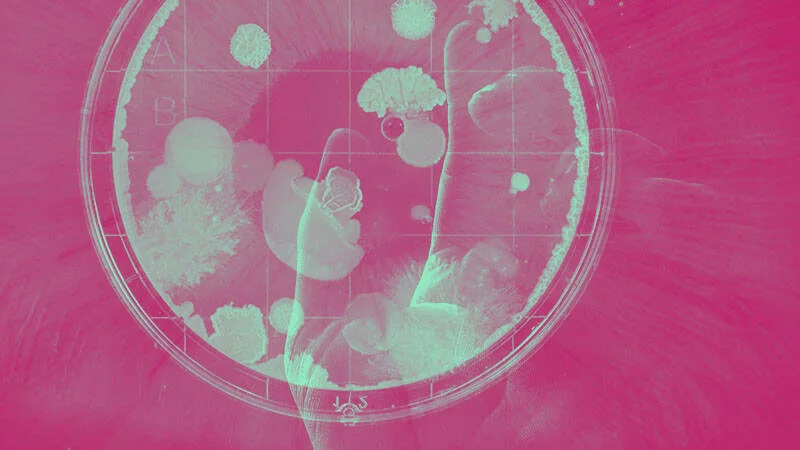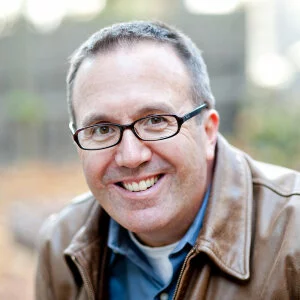 When I first typed out my editorial on viral non-evil, the coronavirus was still novel and the panic not quite a pandemic. But as I type now, close to a 1.5 million have died worldwide and the virus proliferates relentlessly, a conflagration with plenty of wood yet to burn as we await a vaccine and its dissemination. What may have seemed to be a controllable fire in the beginning now rages nearly out of control in the United States, India, Brazil, and elsewhere. Viewing the virus as part of God’s “good creation” presses against our theological sensibilities. Is the coronavirus evil? How can it not be?
When I first typed out my editorial on viral non-evil, the coronavirus was still novel and the panic not quite a pandemic. But as I type now, close to a 1.5 million have died worldwide and the virus proliferates relentlessly, a conflagration with plenty of wood yet to burn as we await a vaccine and its dissemination. What may have seemed to be a controllable fire in the beginning now rages nearly out of control in the United States, India, Brazil, and elsewhere. Viewing the virus as part of God’s “good creation” presses against our theological sensibilities. Is the coronavirus evil? How can it not be?
I am honored that my meager editorial elicited such profound and rich responses. Each encouraged and stretched my perspective while nourishing my soul. As this array of brilliant respondents has written, a virus, no matter how destructive, cannot carryViewing the virus as part of God’s “good creation” presses against our theological sensibilities. Is the coronavirus evil? How can it not be? the moral equivalence of human willfulness. But lack of moral willfulness doesn’t make it good.
Viruses are not free agents, but I still wonder about a kind of created freedom in the nature of things—akin to what we know about uncertainty in the quantum realm undergirding the reality we experience. Inasmuch as humans are made from the dust in God’s image, there exists a continuity between Creator, creation, and creature. The free will of God manifests in the moral choices humans make, and is reflected, perhaps, in what we perceive as the random nature of nature.
John Stackhouse labels the virus “a pestilence with no place in the messianic kingdom to come.” Katherine Sonderegger aptly narrated the dreadful landscape wrought by the microscopic legion, a tip of the hat to Mark 5:9 and the tyranny of Satan persuasively argued by Gregory Boyd, a virus victim himself. The New Testament easily attributes viral pestilence to the devil’s work, though God can use it for his own glory. Whether or not this is what we’re witnessing with the pandemic depends on our theology.
As Jim Stump asserted, “science doesn’t get to answer theological questions, but it can certainly prompt us to reconsider whether we’ve done our theology well.” Science prompted me as a pastor to rethink certain aspects of my theology. As Christians, “we walk by faith, not by sight” (2 Cor 5:7), but that only means that there’s more to reality than what we see. It doesn’t mean we ignore what we can see. Faith is not fantasy. If theology is going to matter, it too must correspond with the way things are rather than with the way we believers want things to be.
I’ve never been fully satisfied by the delineation of labor between science explaining the how and theology the why. As Creator of all things, God authored all that science discovers. We know death and viruses preceded humanity’s appearance on earth, and both play an essential part in biological evolution.As Creator of all things, God authored all that science discovers. “A bad thing might be a good thing,” as John Stackhouse reminds. Conversely, a good thing can become a bad thing too, as Katherine Sonderegger allows with her mention of privatio boni. I wrote a follow up editorial in praise of St. Augustine’s reasoning of evil as essentially nothing, a basic nonentity with wholly derivative power. Like a virus, evil extracts its life from the goodness it perverts. Thus, evil often gets spoken in terms of what it is not: injustice or iniquity or ingratitude, disorder, disobedience, faithlessness, lawlessness, godlessness, and the rest.
Gregory Boyd, laying the pandemic at Satan’s feet, asserts that to “take the New Testament’s perspective seriously” is to regard creation as “corrupted at some point by an enemy, to one degree or another.” As for how Satan becomes the devil, science can’t help us. Tradition surmises he mutated through free will of his own. Theology grants moral agency on Satan’s part, a fallen angel before the fall who then provoked the fall of humans. John Stackhouse notes the slithering serpent in Eden (and talking, no less), evidence of evil’s pre-fall intrusion. Nevertheless, why (and how for that matter) did an angel become a demon? Theology grants moral agency on Satan’s part. But why would God allow a snake in Eden’s grass—not to mention physical death and mosquitoes and biologically necessary bacteria and viruses?
The best I have to offer remains the free will defense, the logic of love. God so loves the world that he sent his Son to save it, but love can’t be coerced. Forced love is not love. Thus, God factors free will into the system for the sake of genuine relationship with people made in his image.The best I have to offer remains the free will defense, the logic of love. Allowing freedom to love means freedom to reject love. Extrapolate this logic to nature as a whole and you have what some see as a hint behind the why of random uncertainty.
Granted, God doesn’t desire a personal relationship with creation the way that he does with people, but the Creator’s relational nature (he made people in his image) still shows up in nature. The freedom we experience as humans made from the dust corresponds to the free process wired into dust itself. But just as the free will of people (and angels) can reject God’s love—and do wrong and commit evil—so the free process of creation results in mosquitoes and the diseases they carry—not to mention genetic deformities, hurricanes, and earthquakes, all outcomes of a creation free to become what it becomes.Daniel M. Harrell, Nature’s Witness: How Evolution Can Inspire Faith (Nashville, TN: Abingdon Press, 2008), 104–05.
To the extent that such explanations remain unsatisfactory, I remind us that theological conjecture at its best remains an endeavor done by sinners. Moreover, as Gerald Bray rightly adds, “God is under no obligation to explain himself to us.” We debate “the problem of evil,” which isn’t really a problem if by problem we mean a puzzle to be rationally solved. Among the factors making evil so evil is its defiance of logic. Even if you blame the devil, you still have to ask what made the devil decide to become the devil? Adam and Eve, created as good, had no good reason for choosing badly. They just did it. We do it too. By choosing wrong, we prove free will exists, but the tyranny of evil is that as soon as we choose it we are no longer free. As the apostle Paul made clear in Romans 7, our choices set boundaries, our unavoidably bad choices set inescapably tight boundaries that affect our futures not only in finite time and space but for eternity too. Our freedom constrains to such a severe extent that Paul could only speak of it in terms of enslavement.
Whether due to the wiles of the devil, the randomness of a very good creation not yet fully free, or the mysterious providence of God, this coronavirus pandemic threatens, constrains, and destroys. It also eventually ends. Immunity and vaccines will take hold. But there is no human-generated immunity or vaccination against evil. Sin infects our souls over and over again. That the Son of God had to die to deliver us from evil attests to its truly hideous and destructive nature. Our only hope, thank God, is through Jesus Christ (Rom 7:25), who starves evil of its power with his own sinless life. “God made him who had no sin to be sin for us, so that in him we might become the righteousness of God” (2 Cor 5:21). Into this glory, creation groans for its own redemption (Rom 8:21) and one day will have it (Rev 21:1).







Comments
Be the first one to make a comment!